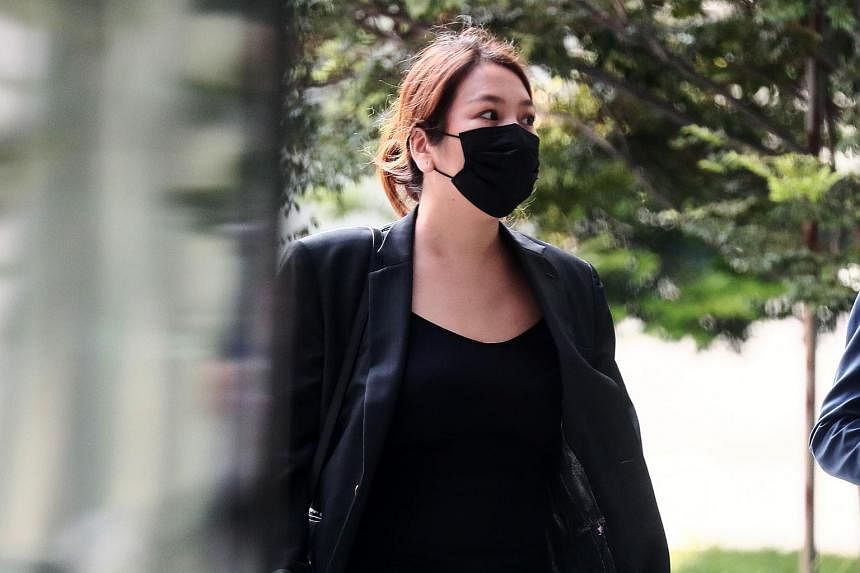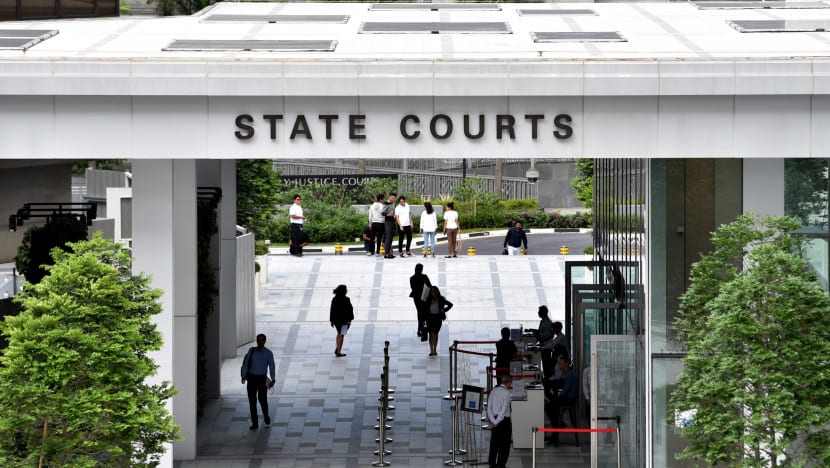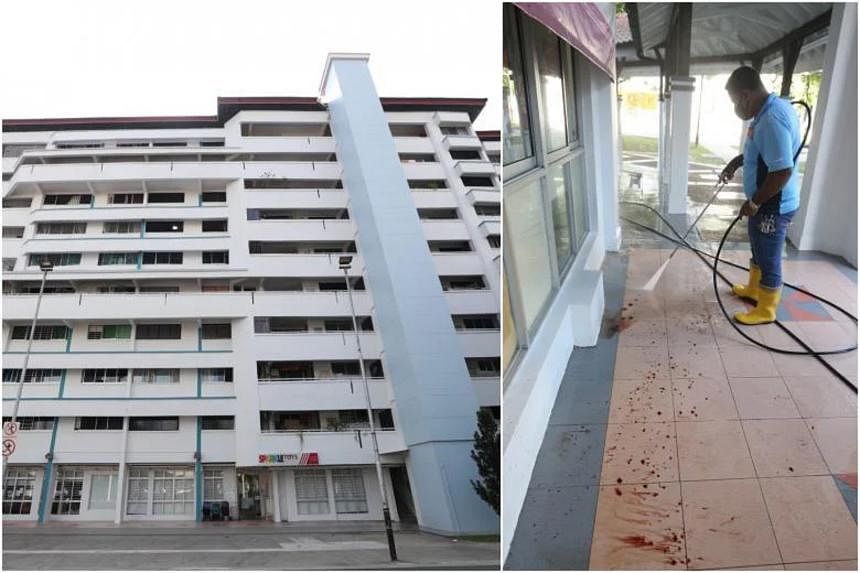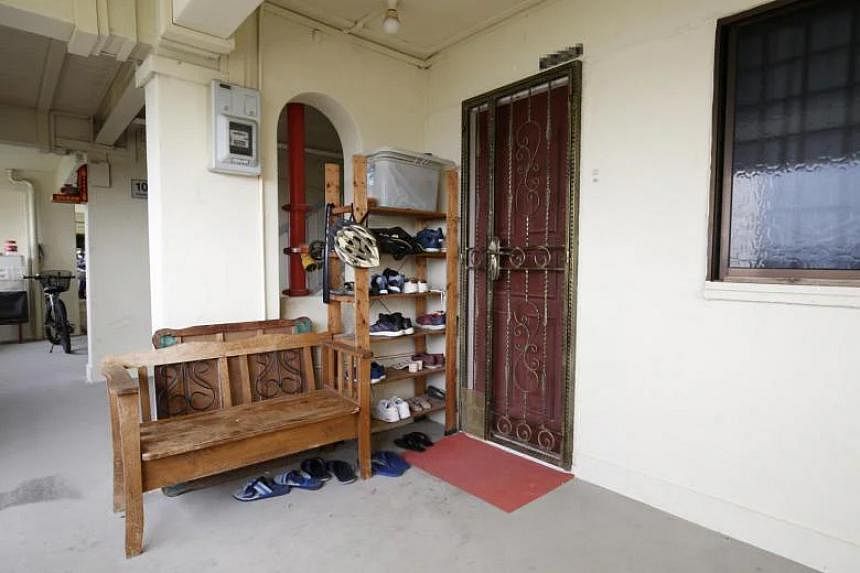- Joined
- Jul 25, 2008
- Messages
- 15,323
- Points
- 113
How a celebrity CEO's rule of fear helped bring down hot Singapore start-up Zilingo

Zilingo suspended its 30-year-old chief executive officer Ankiti Bose over complaints about alleged financial irregularities in March. ST PHOTO: FELINE LIM
Aug 4, 2022
SINGAPORE (BLOOMBERG) - At first glance, the implosion of vaunted fashion start-up Zilingo looked jarringly sudden.
When the Singapore tech darling suspended its 30-year-old chief executive officer Ankiti Bose over complaints about alleged financial irregularities, it was March. Within weeks, creditors were recalling loans, more than 100 employees had left, and Ms Bose found herself fired, though she denies any wrongdoing. The company's survival is now in question.
The Zilingo meltdown has rattled the tech industry in South-east Asia and beyond. The start-up had raised more than US$300 million (S$414 million) from some of the region's most prominent investors, including Singapore investment company Temasek and Sequoia Capital India, the regional arm of the Silicon Valley firm that backed Apple and Google. Ms Bose was a celebrity who criss-crossed the globe to speak at tech gatherings from Hong Kong to California.
Interviews with more than 60 people, including current and former staff, merchants, investors, entrepreneurs and friends of the key players, suggest that Zilingo struggled for years under Ms Bose's leadership. Her management style alienated employees and undermined the business, according to staff who worked under her.
The start-up veered from one strategy to another in pursuit of sales, including a US$1 million promotional trip in Morocco, loans to customers and a short-lived push into the United States. At one point, she became fixated on "crazy growth" to catch the attention of Japanese tech titan Masayoshi Son, according to two former employees with direct knowledge of the matter.
At the heart of the company's breakdown lies the soured relationship between Ms Bose and her long-time supporter, Mr Shailendra Singh, head of Sequoia India. Allies for years, they fell out as financial pressures mounted. Mr Singh lost faith in the management skills of the young founder he had championed, while Ms Bose believed Mr Singh betrayed her by pushing her out of her own company, according to people familiar with their relationship, who requested anonymity as the talks were private.
The clash grew so acrimonious that Sequoia's lawyers demanded in a May legal notice that Ms Bose stop making allegations that could tarnish Sequoia's reputation, the people said.
Zilingo's turmoil highlights an apparent lax internal corporate governance culture that is not uncommon in the start-up industry. For two years, the company failed to file annual financial statements, a basic requirement for all businesses of its size in Singapore. Auditor KPMG has yet to sign off on Zilingo's financial year 2020 results. While it is not unusual for start-ups to miss these deadlines, which can result in a fine of up to $600, it is typically a warning sign that firmer action may be needed by the board.
Yet, investors, including Temasek and the Economic Development Board's investment arm EDBI, put more funds into Zilingo at the end of 2020. Shareholders that together own a majority stake of the company only formally acted against Ms Bose after whistle-blower complaints were filed earlier this year.
Tech warning
The saga has also become a warning for the region's tech community, which is assessing the fallout of global economic shocks from Covid-19, the war in Ukraine and global inflation."Whatever happened at Zilingo, there will be a lot more dramas in the next couple of years as the big worldwide recession impedes hot shots from raising money," said veteran investor Jim Rogers, chairman of Rogers Holdings in Singapore. "I have seen this rodeo before."
Bloomberg News reviewed dozens of internal documents, e-mails, texts and other media from Zilingo, and Ms Bose sat for two extensive interviews, one before and one after her dismissal from the company on May 20. The board's decision to fire her was not abrupt, but rather the culmination of years of tension, according to the documents and people with direct knowledge of the matter.
"Board members were concerned about the company's performance over the last few years and sought to share suggestions to address the company's performance including cash burn," Zilingo and its board said in a statement to Bloomberg News.
"In March 2022, investors received complaints about serious financial irregularities which appeared to require investigation. With the support of the majority investor shareholders, an independent forensic investigations consultancy was appointed to look into the said complaints. After a comprehensive process lasting almost two months, including numerous opportunities for Ms Bose to provide documents and information, the company subsequently terminated Ms Bose for cause based on the findings of that investigation."
SPH Brightcove Video
Ms Bose said the process to terminate her was an "unfair witch hunt" and denied that she was given numerous opportunities to respond to allegations. She said she has not seen the investigation report, which was not made public. On the board's suggestion to implement changes, she said the team cut the cash burn by 70 per cent between the end of 2019 and the end of 2021.
"It was not easy, we did not succeed at everything," she said in July. "It was chaotic and painful, but we did do it and we made the best effort we could."
Zilingo's origin story is part of South-east Asia's start-up lore. Ms Bose came up with the idea as she wandered through Bangkok's Chatuchak market, where 15,000 stalls offer goods from across Thailand. She and co-founder Dhruv Kapoor wanted to build a platform that would allow such small merchants to sell to consumers across South-east Asia.
Mr Singh was instrumental from the start. He and Ms Bose had worked together at Sequoia and he was happy to support one of the firm's own. Mr Singh had started his career in Sequoia's Silicon Valley office, learning at the side of veteran investors Michael Moritz and Doug Leone. Mr Singh had transformed Sequoia Capital India over 16 years into the region's biggest venture capital (VC) firm with some US$9 billion of assets under management and 36 unicorns on its score sheet across India and South-east Asia.
He invested in Zilingo's seed round in 2015, when Ms Bose was 23 years old, and in every fund raising since. "We think the world of her," he told a fellow venture capitalist in 2016, in an e-mail seen by Bloomberg News.

Mr Dhruv Kapoor, co-founder and chief technology officer of fashion e-commerce marketplace Zilingo. PHOTO: ZILINGO
But like many upstarts, Ms Bose and Mr Kapoor faced challenges almost from the beginning. Their consumer-focused fashion site struggled because of the thin margins and low average income in South-east Asia, a fragmented region with different languages and currencies. By late 2017, they decided to reposition Zilingo into a business-to-business platform, where small manufacturers and wholesalers could sell goods directly to small retailers in the region.
In 2018, Zilingo raised US$54 million from investors. The company decided to splurge US$1 million to whisk nine social media influencers to Morocco for a three-day extravaganza, complete with camel rides, a hot-air balloon trip, yoga lessons and gourmet dinners.
It was a massive flop, according to an early employee with direct knowledge of the event. The goal of #ZilingoEscape was to bring in one million new users, one for each US$1 spent. The final tally was about 10,000, the person said. Ms Bose declined to comment specifically on the campaign, but said it was part of the company's US$10 million annual marketing budget.
This appears to have become a pattern for Ms Bose. With cash in Zilingo's coffers, she would dive into new initiatives to supercharge growth even if the immediate financial benefits were questionable. In one example, Ms Bose suggested that Zilingo subsidise a 2 per cent to 4 per cent discount for transactions, effectively paying merchants to trade with one another. She cheered on the team as gross merchandise value hit US$1 million for the first two months, even though Zilingo was getting no fees from the merchants, said a person directly involved.
In 2018, Ms Bose came up with the idea of giving out loans to suppliers and vendors who needed capital. It took off, so in the coming months Ms Bose cranked up the pressure. She told the team to give out more loans each month on a running basis, the person said. But no one could have predicted the pandemic, or the toll it would take on start-ups like Zilingo, and much of the debt had to be written off.
Yet Ms Bose's star was rising in the industry. In early 2019, Zilingo raised US$226 million, lifting its valuation to US$970 million. The charismatic CEO wooed tech gatherings with her vision of how start-ups like hers were a new model for the emerging world.
"We are about to shake things up quite a bit," Ms Bose said at a panel discussion in Singapore, flashing a wide smile and drawing applause from the audience.
Inside the company, she drove staff relentlessly. In one instance, Ms Bose messaged a senior lieutenant early on a Sunday morning and called about a dozen times. When the employee did not pick up immediately, she told the lieutenant: "You obviously don't care about the company enough."
Publicly, the company seemed to be going from strength to strength. In July 2019, Mr James Perry, former managing director and Asia-Pacific head of technology investment banking for Citigroup, joined Zilingo as its first chief financial officer.
It was a coup for Ms Bose, some 20 years Mr Perry's junior. Ms Bose said in an interview with Bloomberg News in 2019 that Mr Perry's experience and respect in the financial world would complement her "young and crazy" self and give confidence to investors. "He's James Perry, he's a god in finance," she said.
In the investment world, her big target remained Mr Son, whose SoftBank Group had upended venture capital by making huge bets on unproven start-ups. Ms Bose told her deputies that Zilingo needed to achieve rapid growth to catch Mr Son's attention, one of the deputies said.
Ms Bose met Mr Son twice that year, once in Jakarta and a second time in Tokyo, according to people familiar with the matter. She explained her vision for Zilingo, but Mr Son never backed her. Neither did KKR & Co, which was considering investing in the start-up at the time, the people said.
In October 2019, Zilingo announced it would spend US$100 million to expand into the US, establishing offices in New York and Los Angeles. Ms Bose's idea was to take advantage of then President Donald Trump's trade war by offering American retailers a way to avoid tariffs by finding producers outside China. Less than a year later, the company shut its US operations.
By the end of 2019, Mr Singh and other directors had told Ms Bose several times to slow the cash burn. But Mr Singh was not getting regular financial reports from Ms Bose, and it was not till a board meeting in November that the directors learnt that the company was actually going through some US$7 million to US$8 million a month, more than they had expected. Mr Singh picked up the phone and had a tough conversation with Ms Bose, according to people with knowledge of the conversations.
Guzzling money
It turns out that the company was guzzling money. The US$226 million Zilingo had raised from investors in early 2019 was gone in less than two years.In 2020, the pandemic battered the business and Ms Bose saw an opportunity to supply personal protective equipment, inking a deal in April to supply 10 million KN-95 masks, valued at US$22.5 million, to India. Six months later, Zilingo was embroiled in a legal battle with the Indian government, which claimed the company had failed to deliver 3.2 million of the masks on time. The company did not comment on the lawsuit, which is still ongoing.
In September, Mr Perry left Zilingo to rejoin Citigroup.
Inside the company, former employees paint a picture of a boss who ruled by fear. She allegedly told some staff they would have no second chance in the start-up industry because of her powerful connections. She would publicly shame employees and declare that she had to do everything herself to save the company, one person said. Another described her as a narcissist who would throw anyone under the bus if it meant saving her own reputation.
Asked in an interview in Singapore before she was fired about the culture under her leadership, Ms Bose uncharacteristically paused and stared out of the window as the sun set over the city.
"I was 23 when I started the company," she said eventually. "I liked having control at the beginning. Of course, I made mistakes and learnt from them. By the time we got to the stage where we had all these senior people, I don't think I was a control freak."
In her most recent interview with Bloomberg in July, Ms Bose reiterated that she has not done anything wrong. "I'm going to be a lot calmer, a lot more empathetic and understanding of how people work together. That has been a big learning for me. Managing people, managing relationships, managing communications - I think all of this is coming down to that," she said.
By November 2020, Zilingo had barely enough cash to last a month. A group of existing investors, including Sequoia, EDBI, Sofina, Temasek and SIG, stepped in to rescue the company by purchasing US$25 million of convertible notes.
In January 2021, Mr Singh and Ms Bose met at the Four Seasons Hotel's alfresco cafe as they did from time to time to talk shop. Mr Singh suggested that Ms Bose consider stepping aside. He said Mr Ananth Narayanan, founder of brand-building service Mensa Brands and former CEO of fashion platform Myntra, could be a potential successor. The two men had met recently and, when Mr Narayanan said he was looking for a new opportunity, Mr Singh had thought of Zilingo.
Ms Bose was shocked. "Not yet," she said.
She went home and, that night, sent a series of emotional texts to Mr Singh, saying his suggestion was a gender-related issue and pouring her heart out. She said her departure would make her look bad, as though the firm needed to be saved by someone else. Mr Singh said it was just a preliminary idea and there was no need to discuss it again. He urged her instead to focus on improving metrics, finding a new CFO and fund raising, according to people familiar with the meeting and texts seen by Bloomberg.
Ms Bose ended the chat by saying they should work together towards the best possible outcome, and Mr Singh replied with two thumbs-up emojis. It was 2.29am.
The mounting pressure was also testing the relationship between Ms Bose and co-founder Mr Kapoor, the chief technology officer. They had clashed over the future of the company the previous month when the company was scrambling to stay afloat.
"I am scared honestly that we will not hit our goals," she texted Mr Kapoor several hours after the chat with Mr Singh. "When something is wrong, the blame falls on me, but everyone's there to take credit for the good," she wrote.
"I don't like being hated for busting my ass at all," she added.
Ms Bose spent most of the year trying to pull in more funds. In July 2021, the company took mezzanine debt of US$40 million from Indies Capital Partners and Varde Partners, but subsequent efforts to raise money from private equity and venture capital firms failed. One issue was a concern from potential investors that users were making fake transactions in key markets to bilk Zilingo's subsidies. Executives from two firms told Bloomberg News that they decided not to back Zilingo after they found evidence of merchant fraud in Indonesia, the country that accounted for more than half of Zilingo's gross merchandise volume in financial year 2021.
There was no suggestion that Zilingo was involved in the suspected fake transactions. Some existing investors, including Burda Principal Investments, Temasek and Sofina, questioned Ms Bose about the company's unaudited financial reports, according to people familiar with the matter. But Ms Bose was providing monthly financial updates to the board, and they were lenient as Zilingo was busy with fund raising at the time, one of the people said.
In March this year, Ms Bose received an ominous text on her phone: "Storm is coming your way."
A few days later, she was asked to join a meeting with investors at Burda's shophouse office in Singapore's Boat Quay, according to people familiar with the details of the meeting. There, Mr Singh and the two other shareholders dealt her a stunner. They said Zilingo's board had received complaints about alleged mismanagement and financial misrepresentation and they were suspending her during an investigation. Mr Singh urged her to be cooperative.
"We just want to save the company," he said, according to one of the people.
Ms Bose promised to help. As she left, she started running through the pouring rain.
"I think the tale is about what sometimes happens when you go into hyper-growth mode," said Ms Aliza Knox, senior adviser at Boston Consulting Group, who has held senior management positions at tech companies including Google and Twitter in Asia Pacific.
In these situations, start-ups need to think about adding independent board members beyond "founders and funders", she said. "Could some of the problems have been mitigated if there were a different kind of board a little bit earlier? That's an important question to ask."
Zilingo is not the only Sequoia-backed start-up embroiled in controversy. BharatPe's co-founder Ashneer Grover resigned from the fast-growing Indian fintech start-up in March after senior leadership accused him of misappropriation of funds. Mr Grover has denied the accusations against him, including that he stole company money to fund an extravagant lifestyle, which he said stem from "personal hatred and low thinking", he said on LinkedIn.
A forensic team from EY India has looked into Indian social commerce start-up Trell, another Sequoia-backed company, amid allegations of financial irregularities. Trell's three co-founders did not respond to requests for comment. Co-founder and CEO Pulkit Agrawal in March sent a note to investors, questioning the nature of the forensic audit, the Economic Times reported, citing its own review of the note.
Sequoia India and South-east Asia published a blog post in April, saying it would take "proactive steps" to drive corporate governance at start-ups it invests in.
Mr Singh is feeling the heat as he evolves from start-up cheerleader to champion of corporate governance. Increased scrutiny prompted some Sequoia-backed Indian founders to compare him to a forceful ruler from Indian history.
"There is art to setting up governance - the board, process and advisers - in such a way that brakes kick in automatically when something bad happens," said Mr Dmitry Levit, founder of Singapore-based VC firm Cento Ventures. He said many of Sequoia India's companies are like racing cars. "If somebody tries to run a Formula One car on off-road terrain in stormy weather, it cannot absorb the shocks."
Sequoia India said it has always cared about corporate governance.
"Building world-class companies requires first-rate governance," a Sequoia India spokesman said in a statement to Bloomberg. "There is always more we can do to work with founders so that their companies benefit from better, more robust standards of governance, such as stronger audit oversight, clear whistle-blower processes and the need to bring independent directors on board earlier."

Ankiti Bose was a celebrity who crisscrossed the globe to speak at tech gatherings from Hong Kong to California. PHOTO: ZILINGO
Salary questions
The zeal for governance may have come too late for Zilingo. About a week after Ms Bose was suspended, a board director and an adviser to another shareholder questioned her about why she was drawing a monthly salary of $50,000. Her employment contract five years ago stated it as $8,500 and the adviser had just discovered she had been making considerably more since 2019, according to people with knowledge of the matter. Ms Bose said the numbers are inaccurate but did not provide her salary information.Investigators hired by the board also questioned her about three sets of revenue numbers for financial year 2021 that Zilingo had shared with external parties: US$190 million, US$164 million and US$140 million. Ms Bose explained to them that the US$190 million had been circulated before the year closed and before the cancellation of masks and other orders. The US$140 million was used in a due diligence report for fund raising, while the US$164 million included uninvoiced revenue, according to a document seen by Bloomberg.
But another document the company shared with a potential investor, seen by Bloomberg News, showed that Zilingo's net revenue for the year was about US$40 million. A representative for Kroll, the firm that conducted the probe, declined to comment.
Ms Bose said in an interview with Bloomberg News in May that Zilingo has used aggressive methods for recognising revenue, but that the calculations are standard practice for the industry and that all of its investors were fully aware of them. "These matters are well understood by all investors," Ms Bose said in the interview.
Zilingo "went through a tough time during Covid-19", said Mr Rohit Sipahimalani, Temasek's chief investment officer. "There were clearly some things the board was unaware of, and when there were complaints made, they investigated into it and actions have been taken subsequently."
Now, the company is in turmoil and some employees say they are worried about their future. The board in June was considering liquidating the company. After her suspension in March, Ms Bose herself filed a formal complaint to the board, asking it to also suspend Mr Kapoor and then chief operating officer Aadi Vaidya, a friend from college, for their poor work performance and lack of leadership. A representative of the company, Mr Kapoor and Mr Vaidya declined to comment. Mr Vaidya resigned last week after seven years with Zilingo, explaining "now is the time to move on, clear my head and reset priorities".
It is a steep fall for Zilingo from just five months ago, when Ms Bose's fund-raising efforts valued the company at US$1.2 billion.


























